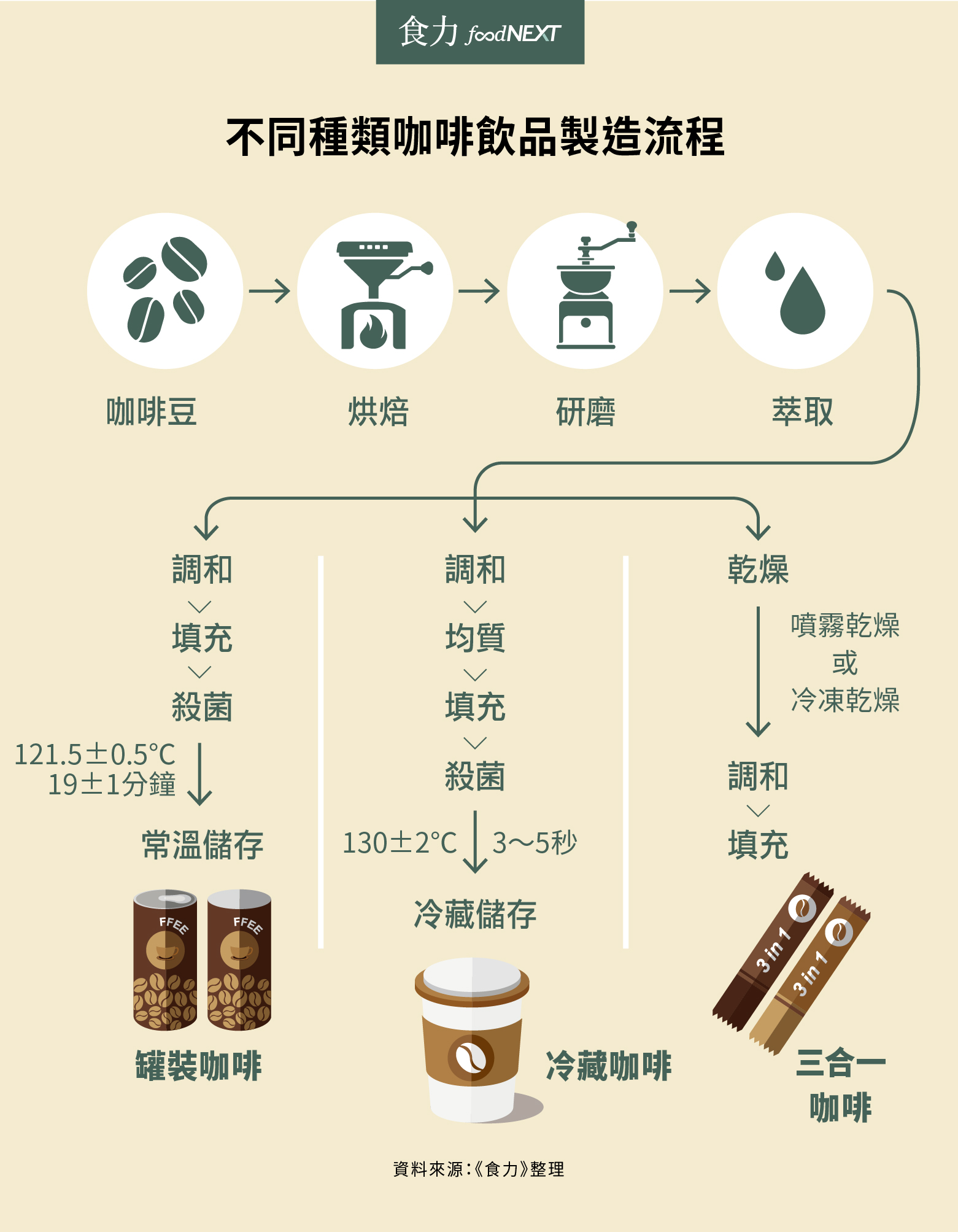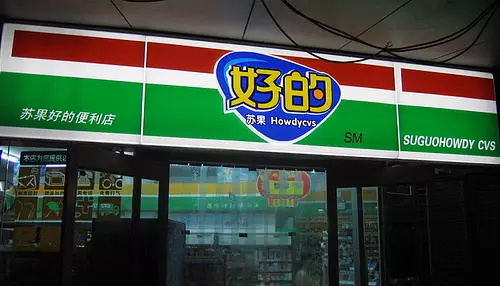When the density of Taiwanese cafes exceeds Paris, the black gold trend has endless business opportunities

Food you should know.
According to statistics from the International Coffee Organization, the world drank an average of 2 billion cups of coffee a day in 2014. If estimated at retail prices, the annual output value of coffee has already exceeded 100 billion US dollars. Therefore, coffee is known as the "black gold industry" and deserves it.
Interview = Lin Zhengwen, Chen Yunzhu
Author = Lin Zhengwen
In David. David T. Courtwright's book Five Hundred Years of Addiction points out that the most widely used drug in the world is not nicotine or alcohol, but caffeine. Among caffeine-containing foods, coffee demand is the most alarming. Coffee is the second largest trade commodity after oil, and it is also the agricultural product with the largest circulation range in the world in the 20th century. According to the statistics of the International Coffee Organization, the world drank an average of 2 billion cups of coffee a day in 2014. If estimated by retail price, the annual output value of coffee has already exceeded 100 billion US dollars. Therefore, coffee is known as the "black gold industry" and deserves it.
The reason why this black gold wave can quickly sweep the world, in addition to the aroma of coffee itself and the refreshing effect of caffeine, lies in the human demand for coffee, mixed not only the function of drinking, but the behavior of drinking coffee has become a part of daily life, and coffee has become a symbol of understanding the taste of life.
Colonial culture made coffee a global crop
In the seventeenth century, European colonial culture was an important factor in turning coffee into a worldwide beverage and global crop, growing coffee from the Middle East to Africa, South America and Southeast Asia. Even Taiwan began to grow coffee, which was introduced from Manila in 1884 by tea merchants of British merchants Deji Foreign Company, which opened the history of coffee cultivation in Taiwan.
coffee's transformation from a food to a symbol of life and culture is due to the coffee shop, which originated in europe and turned the place for drinking coffee into an important place for chatting, negotiation and even creation. therefore, there is a famous saying left by french poet balzac: "when i am not at home, i am in the coffee shop. when i am not in the coffee shop, i am on my way to the coffee shop."
However, it is thanks to the Italians that coffee has really changed from a living culture to a large-scale industry. In 1946, the Italians improved the Italian coffee machine to make coffee faster and more efficient, greatly improving the commercial efficiency. Xiao Zi, founder of Starbucks, the world's largest coffee chain, returned to the United States to carry forward the Italian coffee culture after contacting Italian coffee in Milan. It was only a quarter of a century ago. Starbucks has 21000 branches in the world. The annual turnover is nearly 10 billion US dollars.
Taiwan's cafe density surpasses Paris
Taiwan's coffee market started relatively slowly. As early as 1988, before Starbucks entered Taiwan, Taiwan already had Japanese chain coffee shops. However, Starbucks led the trend of take-away coffee. Chain convenience store operators who smelled huge coffee business opportunities imitated and sold take-away coffee, which made Taiwan's coffee market move to another peak. With nearly 8000 coffee shops in Taiwan,"the whole city is my coffee shop" is no longer an advertising slogan. It is a true portrayal of Taiwan's coffee market. Wu Yiling, chairman of the Taiwan Coffee Association, who has visited more than 20 coffee-producing countries and has been engaged in coffee research and development for more than 30 years, said that "the density of cafes in Taiwan has exceeded Paris."
Deeply influenced by colonial culture, Taiwan once cultivated thousands of hectares of coffee in the 1940s, but after several changes, it gradually declined. It was not until after the September 21 earthquake in 1999 that tourism and leisure began to develop in various places to revive the economy. Taiwan coffee was once again excavated, and it was only then that it began to be planted in the central mountainous areas. In the past five years, the yield and quality have stabilized, and after the flavor of Taiwanese coffee emerged in the international competition in 2012, the Tea Reform Farm of the Council of Agriculture has also begun to invest in Taiwanese coffee research to help farmers increase planting area and yield. However, Taiwan coffee has always been limited to small planting area, harvesting labor is expensive (5- 7 times the wages of coffee producing countries in Central and South America), and the price remains high. Take the most popular Alishan coffee as an example, 2000 yuan per pound, only players will consume and enjoy it.
International Coffee Organization committed to sustainability
As a result, 95% of the raw materials for coffee consumed by Taiwanese people come from imports. However, from the origin of cultivation to the hot coffee, the intermediate process also includes planting and harvesting and fruit processing, followed by the middleman's green bean trading, roasting and retail, and finally to the consumer's grinding brewing and cup. This chain of processes is called the coffee supply chain. There are about 60 countries in the world that mainly produce and trade coffee. These countries need trust and cooperation to achieve a stable balance between coffee supply and demand in order to improve their living standards through coffee export. The International Coffee Organization (ICO) is an organization that can link coffee supply and demand mechanisms around the world. ICO will send personnel to visit whether the planting and processing conditions in the producing countries meet the standards to maintain the quality of coffee production.
Wu Yiling, who often participates in ICO activities, found that "the market will change because of consumers, and the country of origin will also upgrade itself because of consumers 'requirements." Therefore, many non-profit organizations have emerged internationally to help small and medium-sized coffee producers, teaching them how to correctly use legal pesticides, how to recycle planting water, and how to recycle the pulp and skin of coffee fruit after processing to make fertilizer.
Taiwan's coffee industry has created a wave of professionals
The rise of Taiwan's coffee industry also comes from "demand." Wu Yiling has been involved in the coffee industry for 30 years. In the early years, coffee bean importers did not need to accept border inspection. Therefore, coffee beans that had been affected by moisture and deterioration during shipping were returned by the original importers. However, traders felt that returning the coffee beans to the place of origin would increase the cost, so they roasted the coffee beans to dark color without defects. They sold the coffee beans at an ultra-low price. Finally, the problematic beans entered the mouth of consumers.
Although this was the "black coffee bean incident" that occurred more than 10 years ago, it inspired Wu Yiling to set up the Taiwan Coffee Association, hoping to learn more about the coffee industry by imitating international coffee organizations. The association even gathered the strength of the industry to assist the government in formulating relevant regulations that can be in line with international standards, so as to make the coffee trade more heated. In addition, coffee quality evaluation and cup testing courses are held to encourage Taiwanese coffee professionals to participate in various international competitions such as the WCE World Cup for roasting beans, pulling flowers, and cup testing, so as to learn and grow. This trend has led young people who have entered the coffee industry in recent years to become "professional" and has led to another trend in Taiwanese coffee.
Besides freshly brewed coffee, which is gaining market share, there are canned coffee, instant coffee, three-in-one coffee, and so on. All these add up, and it is estimated that there is nearly NT$100 billion in business opportunities a year. For consumers, only by understanding the process of coffee drinks and understanding the impact of coffee on health can they find the most suitable way to drink coffee and enjoy coffee life easily.

Important Notice :
前街咖啡 FrontStreet Coffee has moved to new addredd:
FrontStreet Coffee Address: 315,Donghua East Road,GuangZhou
Tel:020 38364473
- Prev

What should I prepare if I want to open a cafe?
It is said that everyone once had a dream of opening a literary cafe. Bookshelves full of your favorite books, play those random and niche style music, agarwood cabinets, quietly placed from the garage or travel to find small objects, these objects old, immature, full of time marks, pick up any one, can evoke a paragraph of your memories and past
- Next

Great upgrade of convenience store-- coffee shop "installed" into convenience store
A few days ago, Suguo supermarket opened a good convenience store in Mochou Road, Nanjing, which is an upgraded version of the third-generation Suguo convenience store. Compared with the previous convenience store, the convenience store has 10 casual dining seats on the first and second floors, and the dining area has been upgraded to a miniature version of the cafe. Coincidentally, a new generation of stores for the whole family also appeared quietly in Shanghai a few days ago. Transparent glass floor-to-ceiling window, log color system
Related
- What documents do you need to go through to open a coffee shop? coffee shop coffee shop certificate processing process
- How to purchase Coffee beans in small Cafe how to choose a suitable supplier for domestic Coffee supply Company
- How to drink Starbucks Fragrance White Coffee? how to make Australian White Coffee? what Italian coffee beans are recommended?
- The Story of Flora Coffee: the name of Flora Coffee Bean and the implication of the Flowers on Florna Coffee
- How much does a cup of coffee cost? How much is the profit of a cup of coffee? What is the profit of the coffee shop in a year?
- Yunnan small Coffee, known as "fragrant Coffee", introduces the characteristics of Alpine Arabica Coffee producing areas in Yunnan, China
- 2023 latest Starbucks full menu price list how much is a cup of Starbucks coffee what is better to drink the most popular hot and cold drinks recommended
- Starbucks different kinds of Coffee Price list Starbucks menu 2023 Top Ten Best drinks in Starbucks
- Starbucks Spring praise Comprehensive matching Coffee Bean theme Story Packaging implication and taste description
- The cost of a cup of coffee latte American coffee cost price and selling price

